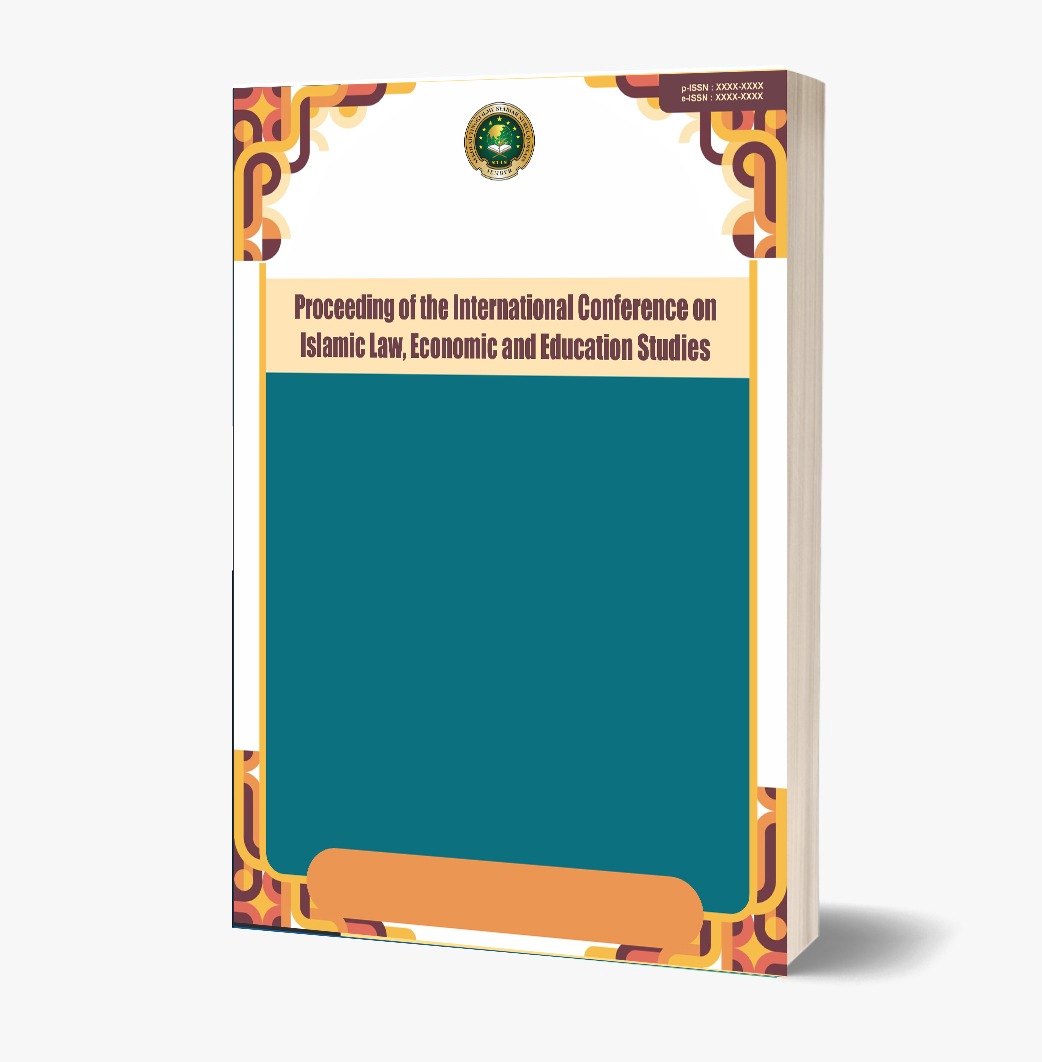Review Maqasid in Law Family Indonesia: Legal Analysis of Children from Adultery
Keywords:
Maqasid Sharia, Children of Zina, Legal AnalysisAbstract
Marriage serves as a means to achieve the goals of Islamic law, one of which is the protection of lineage (hifzhan-nāsl). The status of children in family law can be categorized into two types: legitimate children and illegitimate children. The purpose of this research is to understand how Maqasid the Shariah (objectives of Islamic law) are applied in determining the lineage of children born out of wedlock. The author employs a descriptive-comparative method using library research. As a result, the study concludes that the Maqasid al-Syari'ah or objectives of Islamic law dictate the establishment of lineage based on legitimate marriage. This is because Maqaṣid al-Syari„ah mandate lineage based on legitimacy marriage, aligning with the objective of Islamic law, which is to protect and preserve legitimate offspring.
References
Alam, A. S., & Fauzan. (2008). Law on adoption from an Islamic perspective. Jakarta: Kencana.
al-Dhahabi, M. (2004). Correct Al-Bukhari (Vols. I-IV). Cairo: Dar al-Hadith.
al-Qaradhawi, Y. (2007). Fiqh maqashid syariah: Islamic moderation between textual and liberal streams (A. M. Riswanto, Trans.). Jakarta: Pustaka al-Kautsar.
az-Zuhaili, W. (2011). Fiqh Islam and Allah knows best. Jakarta: Echo Human.
Bukhari, I. (2012). Sahih Bukhari II (S. Abdullah, Trans., 1st ed.). Jakarta: Al-Mahira.
Constitutional Court Decision No. 46/PUU-VIII/2010 concerning the judicial review of Article 43 paragraph (1) of Law No. 1 of 1974 concerning illegitimate children.
Dahlan, A. A. (1999). Encyclopedia law Islam. Jakarta: PT. Efforts New van Hoeve.
Djamil, F. (1994). Recognition of children out of wedlock and legal consequences. Jakarta: PT. Pustaka Firdaus.
Hartati, R. B., & Luthfi, M. (2023). The process of adoption in Islamic law perspective. AL-BURHAN, 13(1), 10–24.
Jabbar. (2013). Validity maqasid al-khalq: A study on the thinking of al-Ghazali, al-Syatibi, and Ibn ‘Asur. Banda Aceh: Postgraduate Program Dissertation, UIN Ar-Raniry.
Jaya, A. C. (1996). Jakarta: King Grafindo.
Jeweler, F. (2008). Advocacy rights child reviewed from law Islam and legislation. Jakarta: Pusataka Bangsa.
M. P. (2021). View law progressive and benefits Mursalah against Constitutional Court Decision Number 46/PUU-VIII/2010 regarding the testing of Law Number 1 of 1974. Jurisprudentia: Journal of Economic Law, 7(2), 249–264.
Mughniyyah, M. A. (2005). Translation fiqh "ala Al-Mazahib al-Khamsah (Masykur et al., Trans., 5th ed.). Jakarta: PT. Lentera Basistama.
Muttaqin, M. N., & Good luck, N. (2020). Right Ijbar guardian review: Maqashid syari'ah and the anthropology of Islamic law. Journal de Jure, 12(1).
Nursia, Good luck. (2014). Study bibliography. Journal Iqra, 8(1), 68.
Nurudin, A., & Azhari Akmal Taligan. (2004). Law civil Islam in Indonesia. Jakarta: Preneda Media.
Priest, A. (2010). Jurisprudence minority: Jurisprudence Al-Aqliyyat and the evolution of maqashid al-syari’ah from concept to approach. Yogyakarta: LKIS.
Republic of Indonesia. (1974). Constitution No. 1 Year 1974 about marriage, Article 43 paragraph (1).
Republic of Indonesia. (1974). Law No. 1 of 1974 concerning marriage, Article 42.
Sarwono, J. (2006). Quantitative and qualitative research methods. Yogyakarta: Graha Ilmu.
Shihab, M. Q. (2002). Tafsir al-Mishbah (Vol. XI). Jakarta: Lentera Hati.
Sirait, R. M. (2021). Recording marriage in regulation legislation: Marriage invitation in Indonesia's marriage law regulations. Jurnal Juristic, 1(1), 16–23.
Yasid, A. (2004). Islam accommodating: Reconstruction understanding Islam as a universal religion. Yogyakarta: LKIS.
Zuhdi, M. (1997). Problem jurisprudence. Jakarta: PT. Mountain Great.





